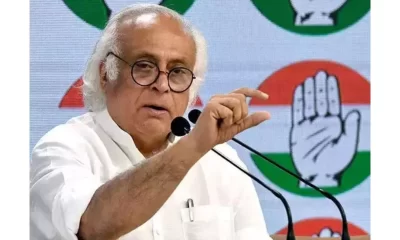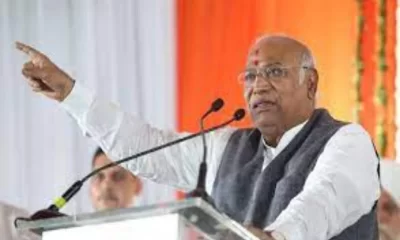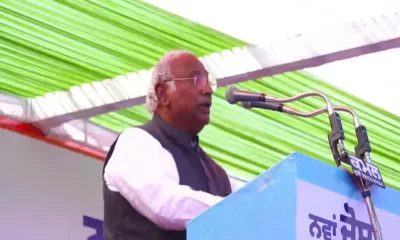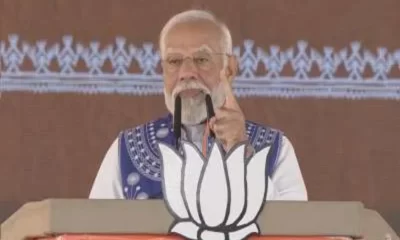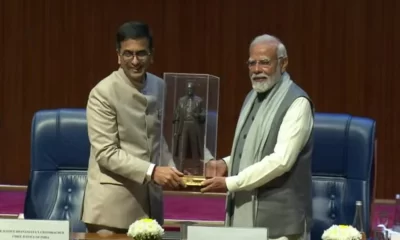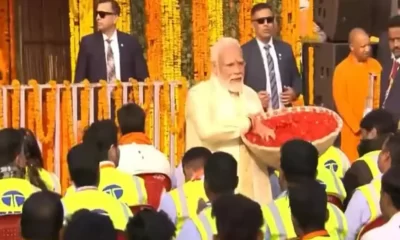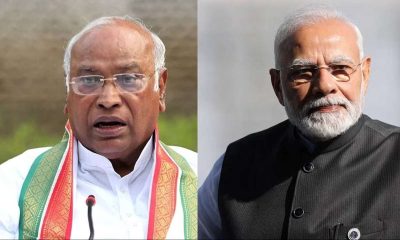India News
The muddle of saffron socialism
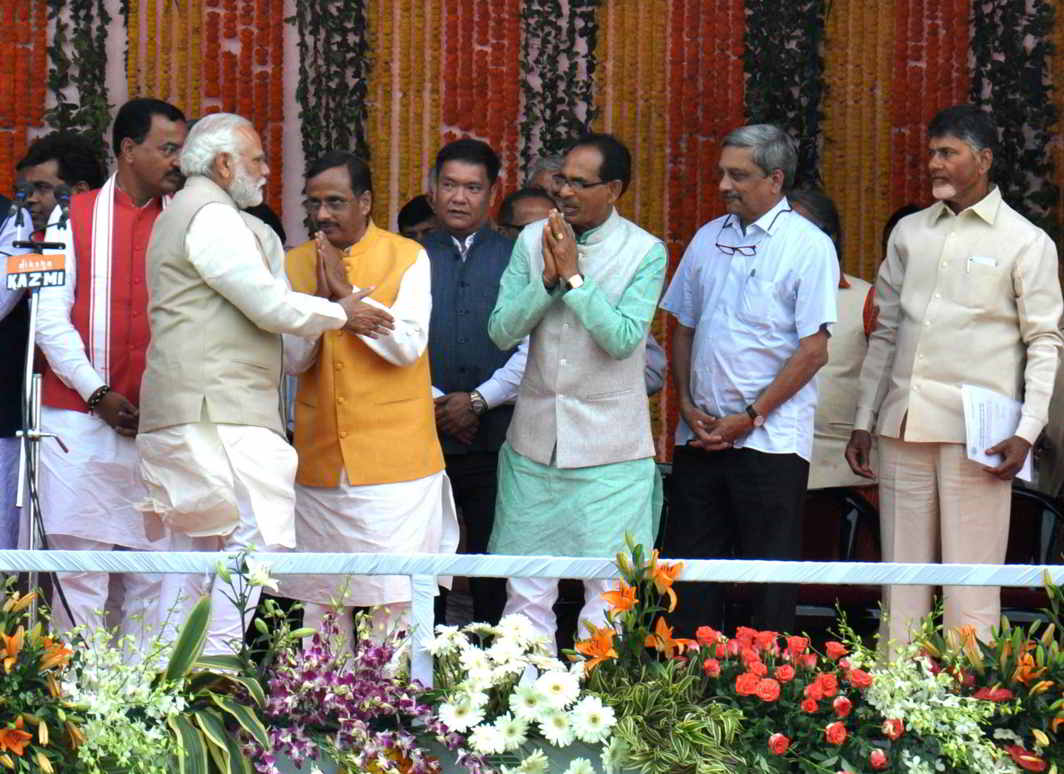
[vc_row][vc_column][vc_column_text]The Modi plan for New India is based on a guided economy
By Parsa Venkateshwar Rao Jr
The Congress party, the communists and others assumed that the pro-poor socialist agenda is theirs alone, and it is the weapon to be used against right-wing parties like the Bharatiya Janata Party (BJP). That is why Congress vice-president Rahul Gandhi as well as Communist Party of India-Marxist (CPI-M) general secretary Sitaram Yechury portray the BJP as anti-poor, pro-rich. But Prime Minister Narendra Modi has outflanked the traditional left-of-centre and left parties by appropriating the pro-poor, anti-rich slogan for his party, and going by the electoral success in Uttar Pradesh, it seems that it has worked. Modi has successfully forged socialism with BJP features and turned it into the standard of the party.
Modi has not invented socialism of the right. He has taken the idea from BJP/Jan Sangh ideologue Deen Dayal Upadhyay, from the rhetorical formulations of Swami Vivekananda about the need to serve the poor, apart from Gandhi’s idea of the rich being the custodians of the riches which are to be used for the poor. But he has consistently harped on his commitment and that of his party for the welfare of the poor. He has projected demonetisation as pro-poor-anti-rich, that is illicitly rich, measure. It remains a debatable point whether UP poll verdict is an endorsement of demonetisation as it is being made out to be in a knee-jerk fashion. The intent of the UP voter in voting overwhelmingly in favour of BJP is quite complex and it cannot be inferred as an approval of the nearly three-year Modi government at the Centre. Demonetisation remains a wrong economic decision and an electoral victory cannot make it right. All that one can say about demonetisation and the UP electoral outcome, if there is any connection between the two, is that bad economics makes for good politics. Modi’s jibes against the critics of the measure will remain just that, jibes, and they do not alter unsoundness of the measure. As a matter of fact, it is the true measure of populism that it seeks vindication not in terms of its own inherent logic but in extraneous factor.
It will be difficult to label BJP as a Hindutva party alone any more, though it remains a Hindutva party in terms of realpolitik. It has become a populist party, and it is right-wing populism at that because it combines nationalism with egalitarianism of a kind. The dreaded word, national socialism, has to be used despite its negative connotations derived from the German experience with the Nazis, the National Socialists. Speaking at the victory celebration do at the party headquarters in New Delhi on Sunday (March 12) evening, Modi put forward a convoluted argument. He declared that the poor are not looking for sops but they want the state to provide them the opportunity to make their own fortune. The converse of the theorem is that once the poor are able to get on and get off on their own, the middle class need not carry the burden of national well-being. The underlying theme is quite evident: the tax-paying middle class is carrying the weight of welfare measures and subsidies.
If this is the rhetorical flourish of the prime minister, the thinking of Modi government at the policy level is to create a welfare state, which is administered by private entrepreneurs and not by the state, and which is supported by increased tax collections. The prime minister maintains a conspicuous silence on the tax booty, while Finance Minister Arun Jaitley is clearly looking for higher tax collections in order to finance welfare measures. The plan will come under stress if the economy does not grow, and tax buoyancy will disappear. The non-performing assets (NPAs) of the public sector banks are a sign of the stress in the financial system. Apart from the evils of crony capitalism that is behind part of the NPA story, there are issues of how the financial system is to bankroll the engines of economic growth. It can be seen in the last three years that public investment is carrying the burden of keeping the growth rate ticking, and there is no sign of private investment picking up. And then there are major problems involved in empowering the poor through educating them, skilling them, and by prodding investment that will create jobs for them. The economy is not at the beck and call of a leader or his party. And even the poor have their own ideas as to how they want to get ahead in their lives. They do not want a paternalist state to make them walk on the straight and narrow path of what the policy-makers believe to be the right path. It is on the rocks of unbound reality that the best laid plans of the politicians break.
Modi’s vision of New India envisages a national economy managed by the state through private sector that will provide full employment. It is a socialist vision of an indirectly planned economy. It poses a challenge to those who hated the Congress variant of socialism, and despite the market meltdown of the last decade have not lost faith in the ideal of a free market economy. One of the reasons that pro-free marketers supported the BJP was their hope that the right-wing party will get rid the country of the state-controlled economy spawned by the Nehruvian socialists. They will now have to come to terms with the Modi plan of making the free market a handmaid of national power and pride and for serving the needs of the poor. Even if they now decide to become the foot soldiers of BJP’s nationalist socialism, it does not alter the ominous truth established by Friedrich Hayek in his 1944 book, Road to Serfdom. Socialism of any kind comes at the price of liberty.
If socialism as such has turned out to be a failed system, and it can now be argued that Nehruvian socialism could not have succeeded with the best of intentions, then it is inevitable that the epitaph for saffron socialism would have to be written as well, and that sooner than later. [/vc_column_text][/vc_column][/vc_row]
2024 Lok Sabha Elections
Bollywood actor Neha Sharma campaigns for her father Ajit Sharma in Bhagalpur, Bihar
The Bollywood actor posted a video on her Instagram handle which showed her journey through various districts of Bihar, including Kishanganj, Banka, Purnea and Katihar. She was dressed in a traditional salwar kameez and was seen greeting and encouraging the public to cast their votes.
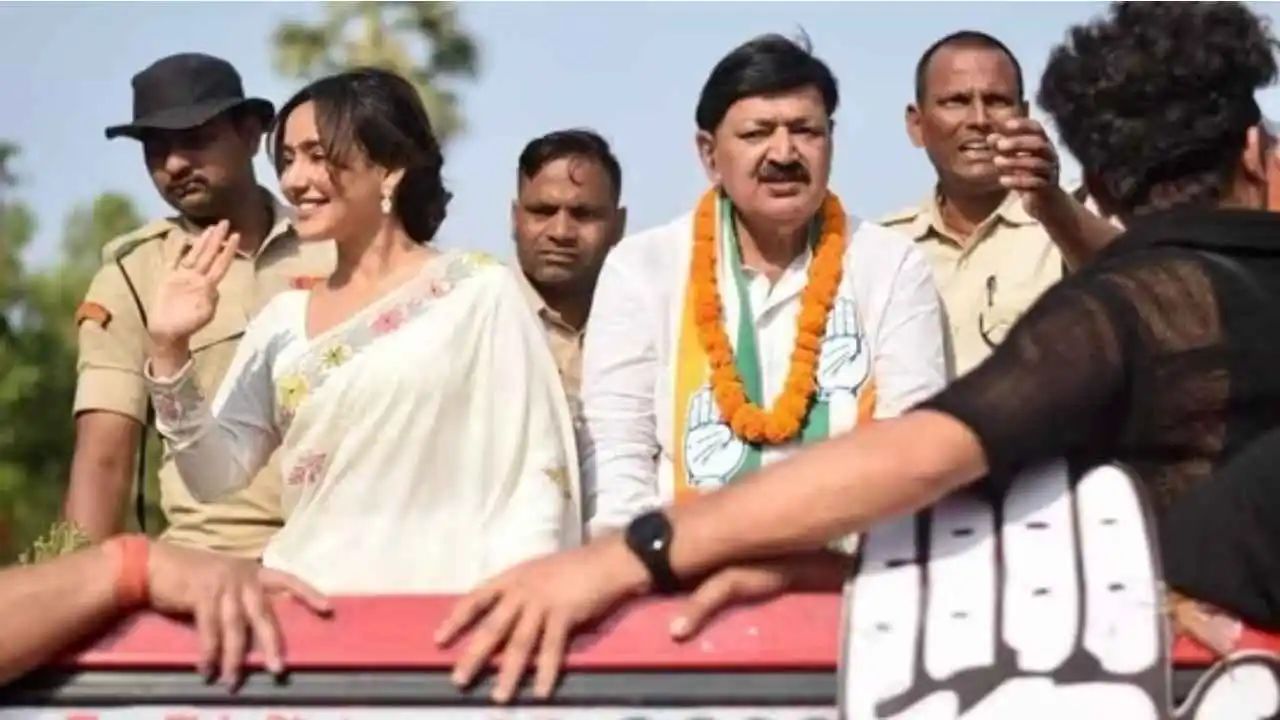
Bollywood actor Neha Sharma’s recent participation in a roadshow in Bihar has taken the internet by storm. Sharma, known for her roles in films like Tum Bin 2 and Crook, was seen supporting her father, Ajit Sharma, who is contesting from Bhagalpur Lok Sabha seat on a Congress ticket. The roadshow came amid speculations that the actor might enter politics. But, it is now clear that she was just campaigning for her father.
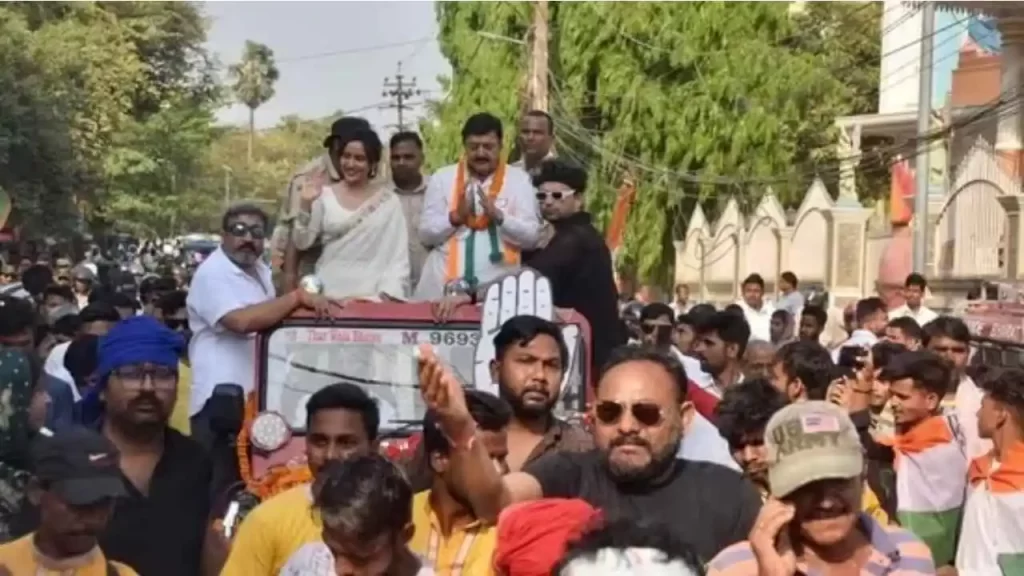
The Bollywood actor posted a video on her Instagram handle which showed her journey through various districts of Bihar, including Kishanganj, Banka, Purnea and Katihar. She was dressed in a traditional salwar kameez and was seen greeting and encouraging the public to cast their votes.
The actor received a warm reception and love from a large crowd in Pirpainti and Kahalgaon during her roadshow. She wrote on Instagram that it is said when someone gives one a place in their heart, then they live there forever. She said her heart is full of all the love and support she was receiving from the people. She thanked the people for the warm welcome she got in Pirpainti and Kahalgaon. Aapka pyar sar ankhon par.
Another video, circulating on social media showed the actor actively participating in her father’s election campaign in Bhagalpur. The election to the Bhagalpur Lok Sabha seat is set to take place in the 2nd phase on April 26. Ajit Sharma is representing the Congress and is up against JDU’s Ajay Kumar Mandal in this seat.
Earlier, there had been rumours and speculations that Neha Sharma might join politics. But many reports have clarified that she is not making her political debut yet. The Bollywood actor had been offered the opportunity to join politics by her father Ajjit Sharma but she is currently focusing on her acting career.
Education
Farmer’s son Nilkrishna Gajare Nirmalkumar from Maharashtra scores 100 NTA score in IIT-JEE Mains 2024
Nilkrishna Gajare’s father is a farmer and had to discontinue his own education after Class 12 as he faced financial difficulties. Gajare faced financial challenges growing up. However, his unwavering dedication and strategic approach to preparation set him apart from the crowd.
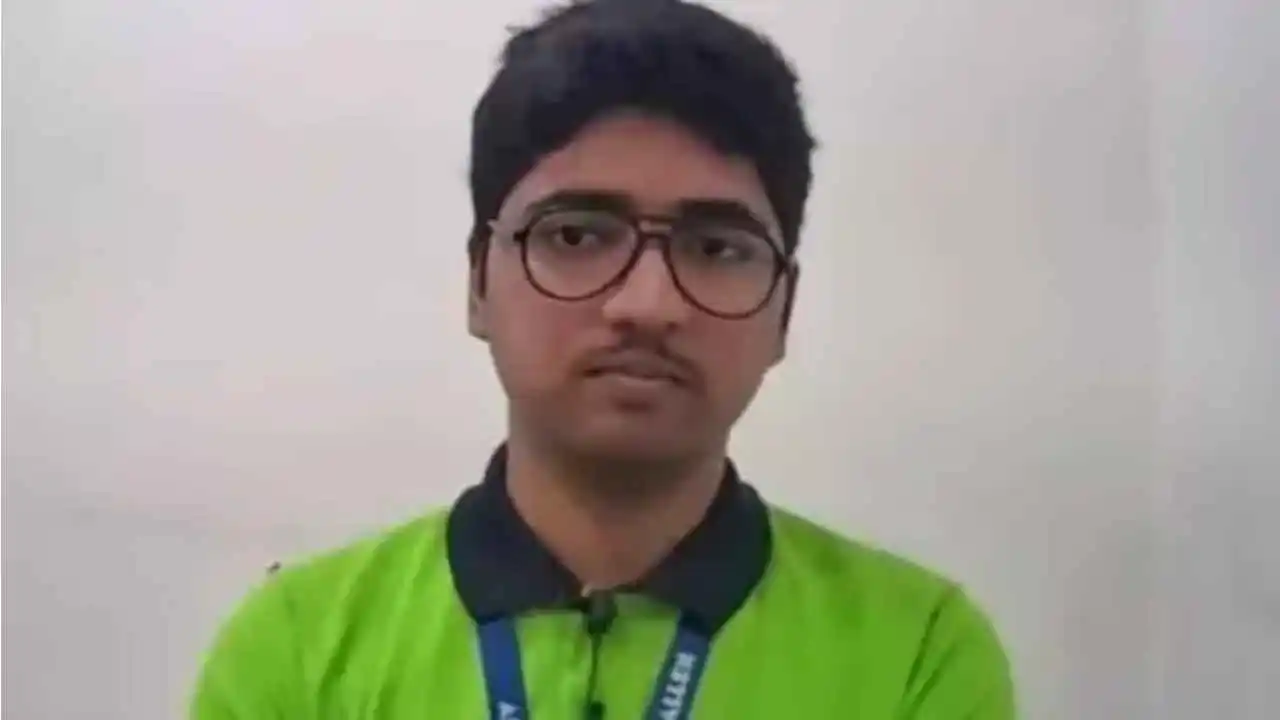
Nilkrishna Gajare, who hails from Maharashtra’s Washim, achieved an extraordinary feat by securing a perfect score of 100 in the JEE Main 2024 examination. His journey from humble beginnings to the pinnacle of success is a source of inspiration for many people.
Nilkrishna Gajare’s father is a farmer and had to discontinue his own education after Class 12 as he faced financial difficulties. Gajare faced financial challenges growing up. However, his unwavering dedication and strategic approach to preparation set him apart from the crowd, which resulted in his remarkable achievement of emerging as topper of one of India’s toughest Engineering entrance exams.
Nilkrishna Gajare had a strategic plan that helped him succeed in IIT-JEE 2024. According to Nilkrishna persistence is important and one should never stop trying until they understand a topic. He said being curious and asking questions are important traits of a good student. He said one should not be ashamed of asking questions.
Nilkrishna spent around 10-15 hours every day studying on his own for the JEE Main exam. He mentioned that he used his class notes for Physics and Physical Chemistry. For organic chemistry and inorganic chemistry, he relied on both notes and practice questions.
As for Mathematics, he believed that practicing regularly was the most important thing for him. Other interests of Nilkrishna include archery. He has participated at both state and national levels, and he finds joy in the sport. He said archery helps him understand the importance of focusing his attention on his goals. Nilkrishna likes watching movies and said they are a great source of enjoyment and relaxation.
He likes to watch a movie after exams and occasionally treats himself to one each week too. Gajare aims to keep up the pace for the JEE-Advanced exam and hopes to get into the IITs. He said he wants to secure admission in IIT-Bombay in the computer science branch.
2024 Lok Sabha Elections
Lok Sabha elections: Samajwadi Party chief Akhilesh Yadav files nomination from Kannauj
The Samajwadi Party has announced Akhilesh Yadav as its official candidate for the Kannauj Lok Sabha seat today
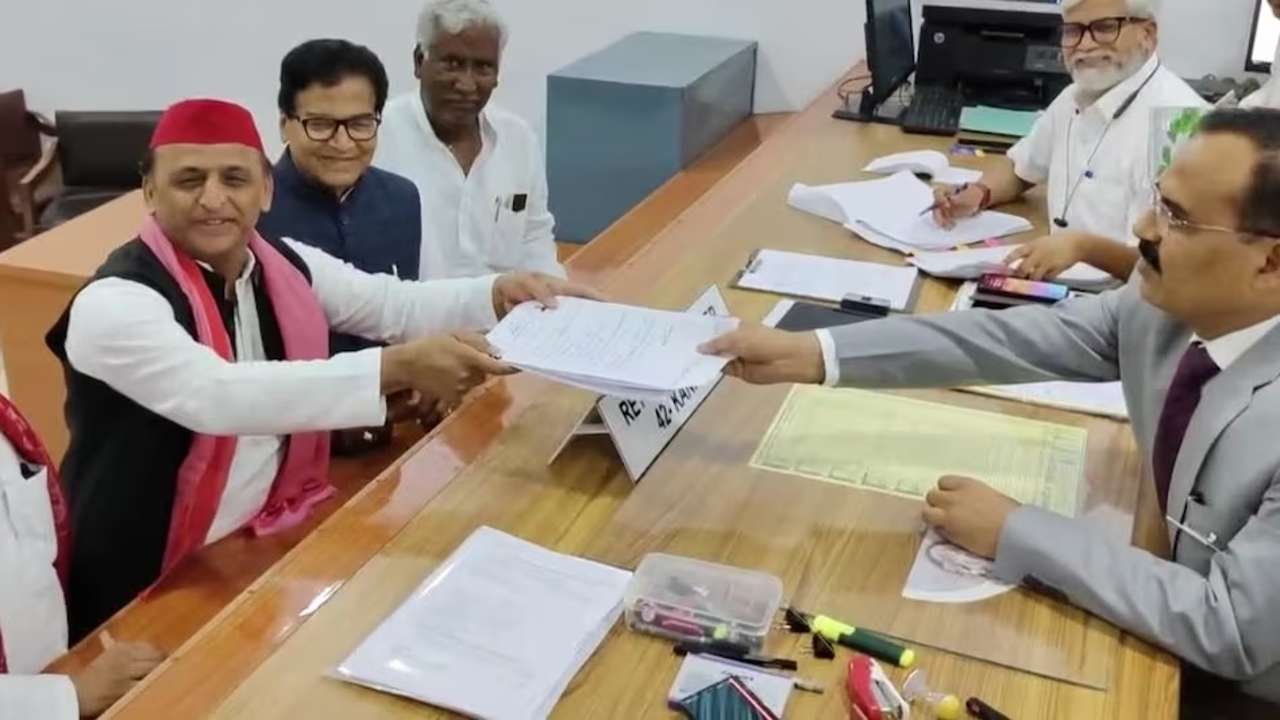
Samajwadi Party (SP) chief Akhilesh Yadav, submitted his nomination for the Kannauj Lok Sabha constituency ahead of tomorrow’s second round of voting. In front of Ram Gopal Yadav and other party leaders, the chief of the SP, who had previously contested the seat in 2000, 2004 and 2009, submitted the nomination.
Speaking with media, Ram Gopal Yadav said that SP would win the seat by a huge margin. The BJP candidate might lose his deposit in the seat, he said.
The Samajwadi Party has completely reversed its earlier plan to field former Mainpuri MP Tej Pratap Singh Yadav as their candidate, which is a significant political development.
Earlier, Akhilesh Yadav told reporters, people will find out when the nomination takes place, in reference to the speculations that he will contest for the seat. The historic victory of Kannauj is the subject of inquiry.
The former chief minister continued, the people have decided that the India bloc is coming as the future and the BJP will be history in this election.
Notably, elections for the Kannauj seat are scheduled for May 13, which would intensify the political drama that is now playing out in Uttar Pradesh. Previously regarded as the Samajwadi Party’s stronghold, the seat was lost by the party in the 2019 election when Subrat Pathak of the BJP won with a resounding victory.
The candidates competing for the following Uttar Pradesh seats will find out their destiny in the second round of voting, which is scheduled for tomorrow, Amroha, Meerut, Mathura, Baghpat, Aligarh, Ghaziabad, Gautam Buddh Nagar, and Bulandshahar.
Notably, two Bollywood celebrities running as BJP candidates in the second round are Hema Malini from Mathura and Arun Govil from Meerut. There are 91 contestants from UP competing in the second phase.
The seats in Gautam Buddha Nagar and Mathura are up for grabs, with a maximum of 15 applicants per seat. In Bulandshahr, six candidates are vying for the presidency. There are twelve contenders running in Amroha, eight in Meerut, seven in Baghpat, and fourteen in Ghaziabad and Aligarh.
1,67,77,198 votes will decide these candidates’ fates.
-

 India News20 hours ago
India News20 hours agoLandslide hits Arunachal Pradesh, highway linking Indo-China border affected
-

 Entertainment20 hours ago
Entertainment20 hours agoBollywood stars Salman Khan, Alia Bhatt, Rekha, Sonakshi Sinha, Aditi Rao Hydari attend Sanjay Leela Bhansali’s Heeramandi premiere
-

 Cricket news14 hours ago
Cricket news14 hours agoTelugu superstar Mahesh Babu meets SRH captain Pat Cummins, says it is an absolute honour
-
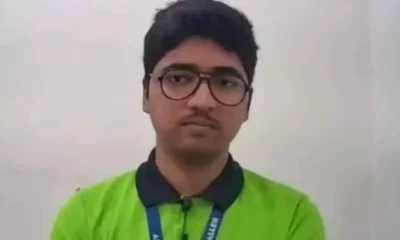
 Education18 hours ago
Education18 hours agoFarmer’s son Nilkrishna Gajare Nirmalkumar from Maharashtra scores 100 NTA score in IIT-JEE Mains 2024
-

 India News21 hours ago
India News21 hours agoTamannaah Bhatia summoned in illegal IPL streaming app case, to appear before cyber cell on April 29
-

 Cricket news21 hours ago
Cricket news21 hours agoIPL 2024: Rishabh Pant, Axar Patel score half centuries as Delhi Capitals beat Gujarat Titans by 4 runs
-
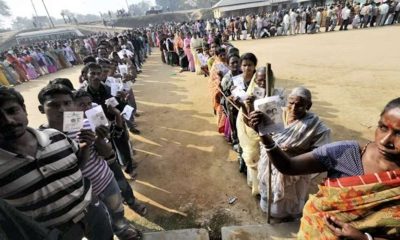
 2024 Lok Sabha Elections19 hours ago
2024 Lok Sabha Elections19 hours agoBihar: Election Commission extends voting timings for 4 Lok Sabha seats due to heatwave
-
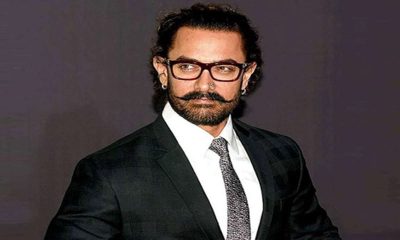
 Entertainment16 hours ago
Entertainment16 hours agoAamir Khan to begin shooting in Delhi for Sitaare Zameen Par next month

